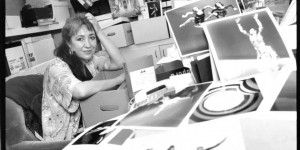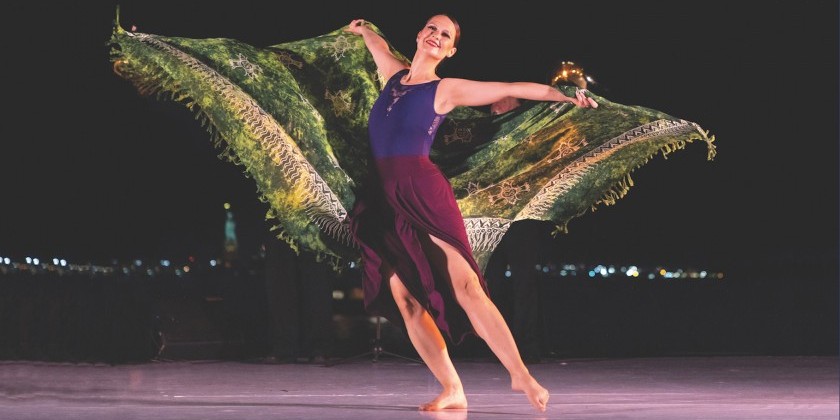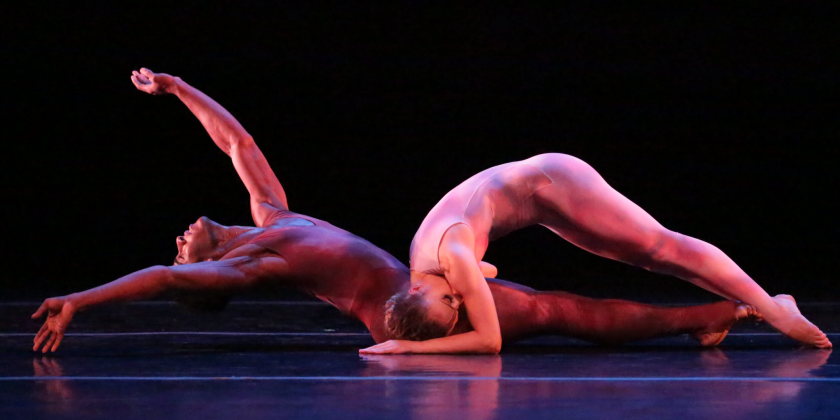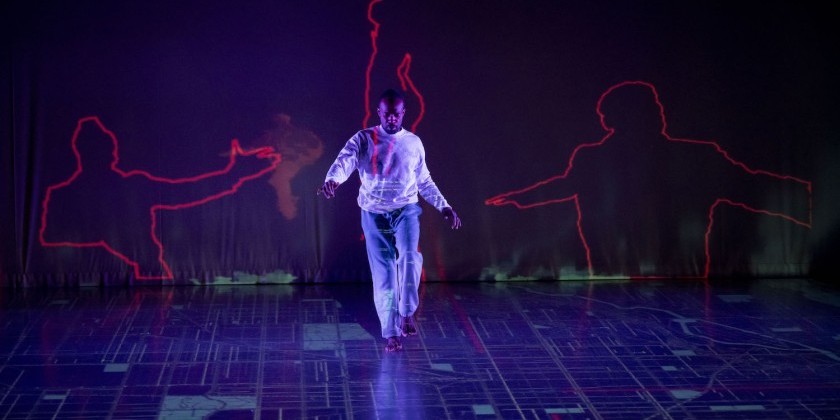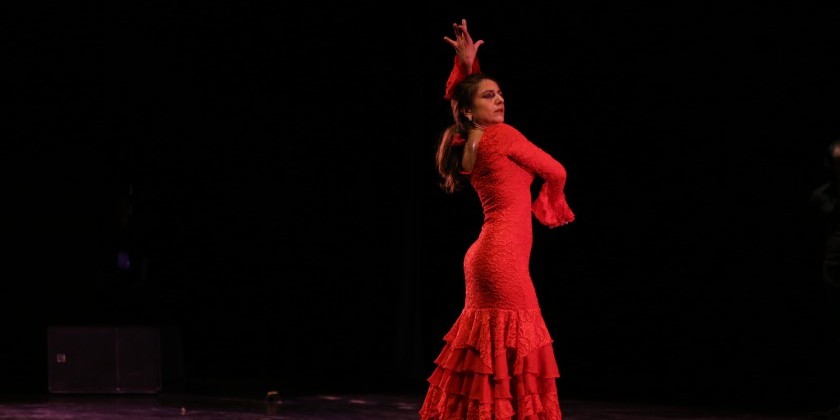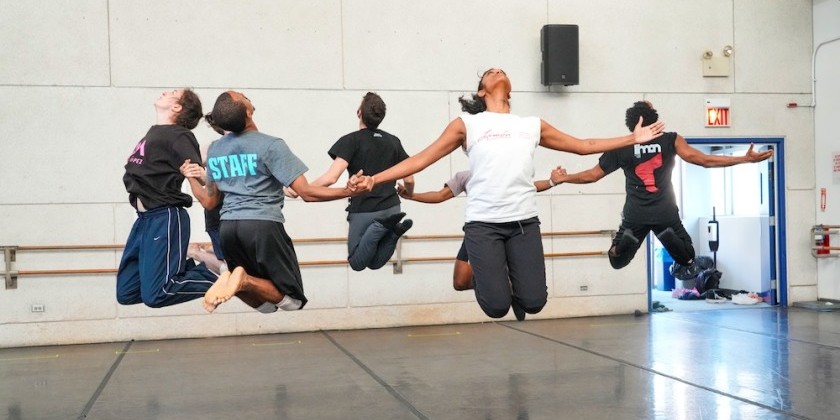Dancing about History, Unity, Freedom, and Flight- Tamango, Nelida Tirado, Ballet Noir
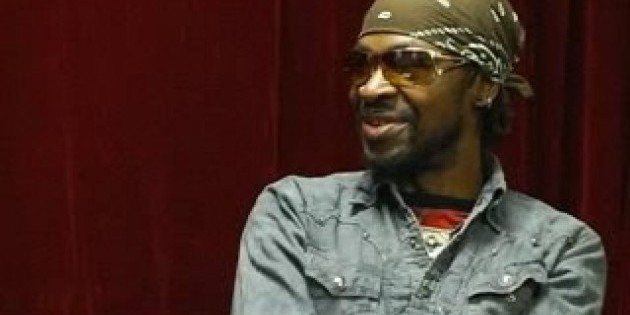
The Rhythms of Tap, Flamenco, and Ballet
Conversations With Artists of Harlem Stages E-Moves Festival 2008: Tamango, Nelida Tirado, and Ballet Noir
The tap phenomenon, Tamango, has been traveling since the age of 9 when he left his country of birth, French Guyana to be with his father on the French Mainland. Constantly on the move between New York, Paris, Africa and French Guyana, Tamango jokes that his “real home” is aboard US Air or Air France.
I was lucky to catch him for a moment “off airplane” to discuss the tapper’s upcoming performances as part of Harlem Stage’s Annual Dance Program, E-Moves. Our interview was a pit stop sandwiched between a quick West Village slice of pizza and a flight to Paris where Tamango was set to appear in a production about Josephine Baker.
Tamango from The Dance Enthusiast on Vimeo.
Whether speaking with this dancer or admiring the shifts and shuffles of his feet as he practices, one can't help but notice his ease with speed. Tamango responds to velocity creatively and with focus - a crucial skill for an improvisational artist.
Perhaps this has something to do with his many stops in New York City. “New York has energy and attitude," he says, "it is a place to brainstorm and see what is important. The city has no time to waste, (so) you have to focus. It is creative as much as destructive; it is up to you to know how to balance that. It forces you to focus and do, otherwise someone will do it for you.”
Tamango will fly back to New York City for Harlem’s E-Moves in order to perform with his old friend the jazz funk guitarist, Charlie Hunter. The two artists met each other in Paris when they were in their late teens/early twenties. Hunter was a musical busker and Tamango joined him working on the streets of Europe making a living and learning about jazz. Tamango recalls, “he was dreaming of a seven string guitar and I was dreaming of tapping on top of the world.”
Now that both artists have met success in their respective fields they will reunite to reminisce, improvise, and make beautiful music together on April 5th and April 11th at 7:30 pm and on April 13th at 3pm.
Changing History With His Feet ©Christine Jowers, The Dance Enthusiast ; Videographer: Adam Sypnier
Tamango from The Dance Enthusiast on Vimeo.
Tamango reminds me that with his rhythms he is telling and re-telling, in his own way, stories that have been shared since the beginning of time. He plays with patterns inherited by the masters of American Tap. These patterns have their roots in cultural traditions that preceded the birth of the tap. “Many cultures have traditions of stomping dances,” he says. Through tap dance one can be brought to Africa, to Andalusia, as well as to Irish, and Moroccan traditions. “Going into rhythm connects you to other people- you realize that we are all one.”
Flamenco, the art of the effervescent and passionate dancer Nelida Tirado, possesses a rich cultural history dating back to the late 1400’s, the time of King Ferdinand and Queen Isabella’s Spanish Inquisition. It is an art form born out of the pain and suffering of the “undesirables” of the Spanish Kingdom at that time. Moors, Jews, North Africans, Arabs, and the Gypsies of India who would not convert to Catholicism where tortured, forced into slavery, and killed. The Flamenco gave these people an opportunity to express themselves and as Tirado says, “ to come together within their helplessness, their anger, and their sadness.”
Nelida Tirado Practices, Speaks of Chemistry, and then, Why She Performs; © Christine Jowers, The Dance Enthusiast; Videographer: Adam Sypnier
Nelida Tirado from The Dance Enthusiast on Vimeo.
There are many ways for a person to study Flamenco but there is no way to really understand the art form without appreciating the culture and history of Spain. Tirado, who goes to Spain frequently to work and study, actually began her Flamenco career directly upon graduating as a student of modern, ballet, and Spanish Classical Dance classes at Ballet Hispanico in New York. Amazingly, she was so quick to pick up steps, instead of studying with the masters; she performed with them first, and studied later.
For the Gypsies, according to Tirado, who “hold the art form very dear” the idea of flamenco study is foreign. Flamenco is part of their life, something that is handed down from one generation to another-an important element of any family or community celebration. Regardless of how one learns, from the street or from a conservatory, Flamenco dancing is s a lifelong practice. Older dancers aren’t expected to quit, but are appreciated for the richness and the depth of the stories they have to share. Tirado expects she will be dancing Flamenco until the day she dies.
The hand gestures, Tirado demonstrates, as she rehearses, “all go back to life in Spain, the way that you talk to a neighbor or friend, - they are very expressive with their hands using them to talk a lot.” She also points out the similarities of her Flamenco gestures to the hand movements of Classical Indian Dance and the stomping of her feet to the stamping of Classical Kathak.
Tirado, speaking to me with words, swirling hands, and bursts of footwork, explains that Flamenco refers not only to the dancer, but also to the music of the singer, and the guitarists. The connection between the dancers and the musicians is what makes Flamenco compelling to perform and to watch. For Nelida Tirado this artistic conversation is the soul, the essence of Flamenco.
One of the new kids on the block at The E-Moves Festival is Ballet Noir. The company, not even a year old, already has an impressive nine performances on its events calendar- (not little venues either): The African Burial Grounds, The Riverside Theater, The Joyce Soho, and The Apollo Theater, just to name a few of the New York City venues besides Harlem Stage.
Corey Baker and Leyland Simmons are the founders of the company. Baker, Simmons, and the dancer Jason Herbert are completely enthusiastic about their new endeavor. They exude hope, ambition, and energy.
Jason Herbert, Performer with Ballet Noir,On His Challenges and Enthusiasms,© Christine Jowers, The Dance Enthusiast; Videographer: Adam Sypnier
The group will be presenting an excerpt of the work COLORS ON A CANVAS at the festival. I watch Baker, Simmons, and Herbert prepare for a trio portion of the dance. It is called “All is Well With My Soul”, and will be accompanied by tenor Lindsey Jones.
“The piece speaks about resilience,” says Baker. It is fine, it is O.K. to fall; you can get back up again. You can break the chains that physically, emotionally and spiritually bind you.”
Baker who describes himself as a member of Generation Y further explains, “ We are a young bunch of people but we are very steadfast about what we are doing.”
When describing what he would like to share with his audience, Baker shares,
“After every performance, they should feel as if they can fly. That is the vibe we want to give, and what we very much stand for in this company.”
HARLEM STAGE’S ANNUAL DANCE PROGRAM, E-MOVES FEATURES
E-MERGING, EVOLVING AND E-STABLISHED ARTISTS.
FRIDAY –SUNDAY APRIL 4 – 13TH, 2008
The Harlem Stage Gatehouse
E-Stablished Performances (Tamango and others) Saturday April 5th at 7:30 pm,
Friday April 11th at 7:30 pm, and Sunday April 12 at 3 pm
E-Merging and E-Volving Artists (Nelida Tirado, Ballet Noir, and others) Friday April 4th at 7:30 pm, Sunday, April 6, 3:00pm and Saturday April 12 at 7:30pm
For more information contact Harlem Stage at 212 281 9240 or log on to www.harlemstage.org




